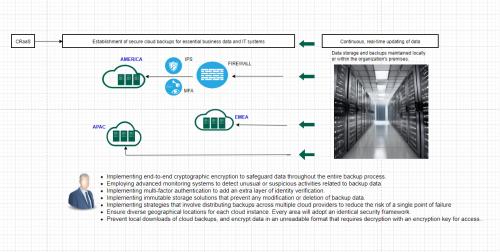Transforming the Fintech Horizon of the 21st Century
Fintech, a revolutionary innovation of the 21st century, has redefined financial transactions by harnessing the potential of digital technology. Its range mainly covers a wide range of financial products and services. With the transformative capabilities of fintech, the need to go to bank branches is practically eliminated, as it seamlessly digitizes data, ensuring better customer retention. This innovation crosses various industries, including but not limited to retail banking, investment management, and fundraising.
The financial industry's resilience during the pandemic crisis is due in part to its ability to adapt when rapidly restructuring business models and integrating cutting-edge technologies such as artificial intelligence (AI) and machine learning. Through intuitive applications, financial operations have moved into the digital realm, allowing businesses to glean insights from complex data points. Within the realm of managed IT services, the exploration of diverse AI and ML applications in fintech has sparked excitement, leading to numerous companies harvesting the rewards of these inventive implementations
Contrary to the belief that AI and ML are exclusive to large enterprises, fintech companies of all sizes are now harnessing these technologies through powerful applications for a variety of purposes. Accessibility has expanded, making these tools an integral part of the financial industry.
Here are just a few examples of the most important applications of AI and ML in finance:
Decision making process
customer service
Loans and insurance
forecast
Security and fraud detection
Simplify financial decision making:
Using data science and visualization tools, businesses now easily analyze data through apps, facilitating informed and impactful decision making.
Customer Support Revolution:
Chatbot AI plays a central role in interacting with customers and handling their requests efficiently.
Loan and insurance conversion:
AI and ML are driving revolutionary changes in insurance policy pricing. Banks are leveraging these technologies to automate and improve various lending processes, including risk assessment, credit scoring, and fraud detection.
Credit score serves as a tool to determine the borrower's loan eligibility and the corresponding interest rate. The integration of AI and ML can greatly improve banks' decision-making processes, leading to more informed and accurate lending choices. This improvement not only improves the efficiency and effectiveness of the lending process, but also minimizes possible losses for the bank.
AI algorithms have revolutionized the field of forecasting, harnessing historical financial data and correlated information to anticipate forthcoming financial performance. This capacity for prediction spans various domains including financial forecasting, customer behavior projection, market trend anticipation, and credit risk assessment.
Enhanced by AI, security and fraud detection systems meticulously scrutinize transactions and data, deciphering intricate patterns indicative of fraudulent behavior. Furthermore, AI plays a pivotal role in safeguarding networks by identifying potential threats, validating user identities, and generating timely system alerts during instances of downtime or phishing attacks. Collaborations with prominent IT consulting companies and financial establishments ensure adherence to regulatory standards, elevate system and data security, and curtail the vulnerability to losses attributed to fraud or cyber intrusions.
The financial landscape has been transformed in a few key ways:
Increased competition:
Fintech entities have created new competition in the financial sector, driving innovation and reducing costs for consumers.
High convenience:
Fintech companies have revolutionized access to financial services through user-friendly mobile apps and online platforms that dramatically improve the management of financial affairs. Easily.
Extended Accessibility:
Fintech has democratized financial services, filling the void for underserved and underserved segments of banking, including those excluded from traditional banking services. or struggling with a poor credit history. In a nutshell, Fintech has driven significant changes in the financial sector, boosting competition, enhancing convenience, expanding accessibility and promoting financial literacy.







Comments